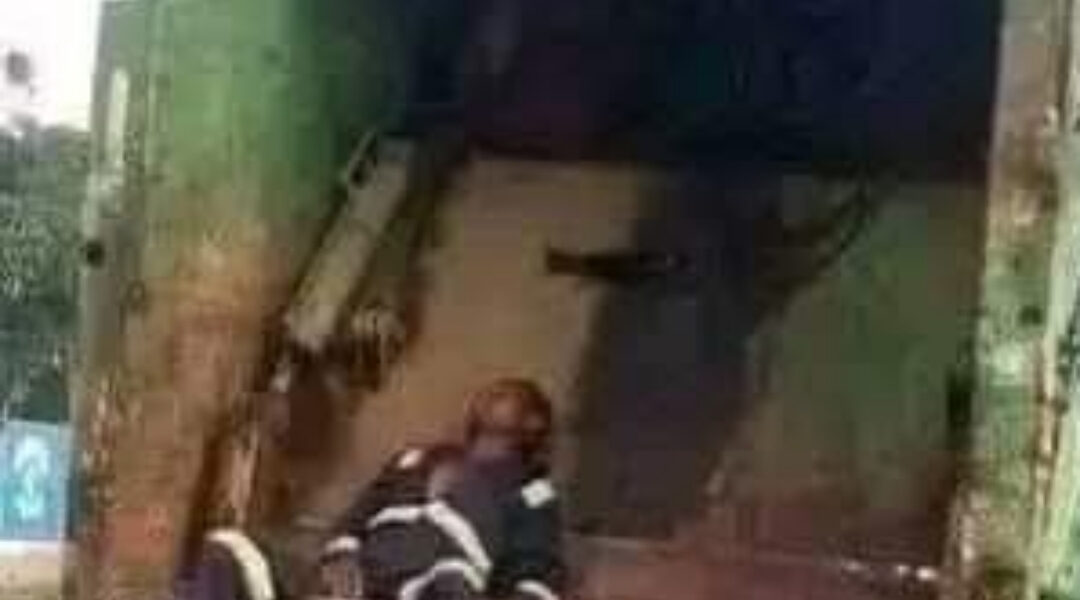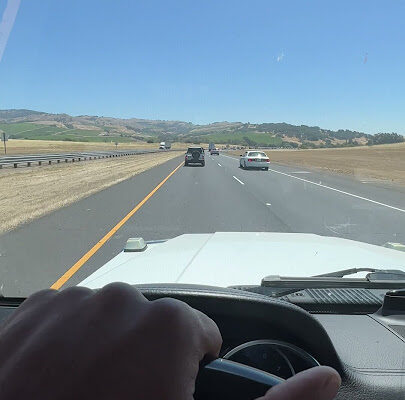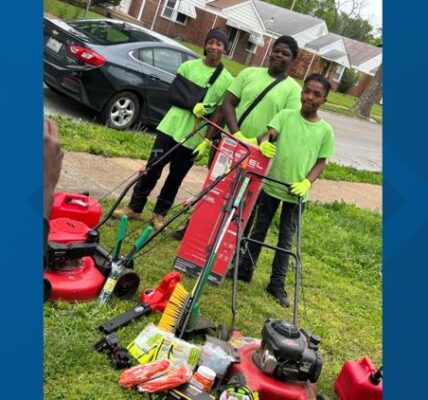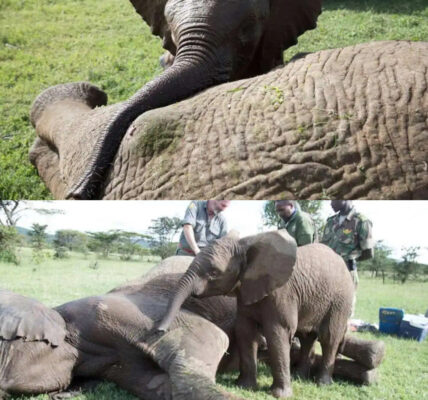The sun was merciless that day, pressing down on the city like a weight that wouldn’t lift. Heat shimmered off the pavement, trash bins baked in the sun, and the air hung thick with the sour smell of rot and sweat.

Marcus didn’t flinch. He’d long learned to live with the heat, the smell, the exhaustion. It was part of the job — part of the life he’d chosen so his children could have one better.
He was a garbage collector.
Every morning before the city stirred, Marcus was already out — steel-toed boots crunching gravel, gloves slick with grime, lifting, tossing, hauling. The world didn’t see him. People passed by with coffee in hand, eyes fixed on their phones, barely glancing at the man who kept their streets clean.
He didn’t mind. Not really.
What mattered to Marcus was what came after work — walking through the front door to his little apartment, his kids running up to hug him, their laughter cutting through the fatigue like light through a dirty window. That was his reward. That was why he endured.
But this day was different.
The hours had stretched endlessly, the temperature climbing higher with each stop. His clothes clung to his body, his muscles screamed for rest, and his throat was dry as dust. Still, he didn’t stop. Not until the last bin was emptied.
Finally, as the truck jolted down the next street, Marcus climbed onto the back for a moment — just one moment — to breathe.
The motion of the truck rocked him gently, the roar of the engine fading into the rhythm of his heartbeat. His eyes closed before he realized it.
And then, without meaning to, he fell asleep.
His body slumped, legs dangling from the edge, arms limp by his side — a picture of complete surrender.
To anyone passing by, it might have looked almost peaceful: a man napping on the back of a garbage truck, lulled by exhaustion. But for Marcus, it wasn’t peace — it was survival. A few stolen minutes of rest between endless hours of labor. A brief escape from the weight of the world pressing down on him.
Drivers slowed as they passed. Some took pictures, some whispered to their passengers. But no one saw the whole story.
They didn’t see the 4 a.m. alarms. The hands cracked and scarred from lifting bins day after day. The late-night dinners where he’d sit quietly at the table, too tired to eat but smiling anyway so his kids wouldn’t worry.
They didn’t see the man who carried the invisible burdens — overdue bills, rent notices, grocery lists that never seemed long enough — all tucked behind that weary, gentle face.
Marcus wasn’t sleeping because he was lazy. He was sleeping because he’d given everything he had to a world that rarely looked back.
As the truck rolled on, the city moved around him — loud, indifferent, alive. And there he was, a silent figure against the roar of traffic, a symbol of a truth so many forget: that heroes don’t always wear uniforms or stand in the spotlight.
Sometimes, they ride on the back of garbage trucks, their heads bowed in exhaustion, their hearts full of quiet pride.
When the truck reached the next stop, the jolt woke him. He rubbed his eyes, stretched, and got back to work without a word. There was still trash to collect, still a job to finish, still a family to feed.
The moment of rest was gone — but for Marcus, it was enough. Enough to keep going. Enough to remind himself that even when no one sees you, your work still matters.
Because dignity isn’t found in applause. It’s found in doing what needs to be done — day after day, without complaint, without reward — simply because someone has to.
That evening, when he finally got home, his youngest daughter ran to him with a crayon drawing in her hand. It showed a stick figure standing beside a big truck, a smile on its face.
“That’s you, Daddy,” she said proudly. “You make the city clean.”
Marcus smiled, eyes glistening. He framed that drawing and hung it by the door.
Because in her eyes, he wasn’t just a garbage collector.
He was everything.
And maybe that’s all the recognition he ever needed.




